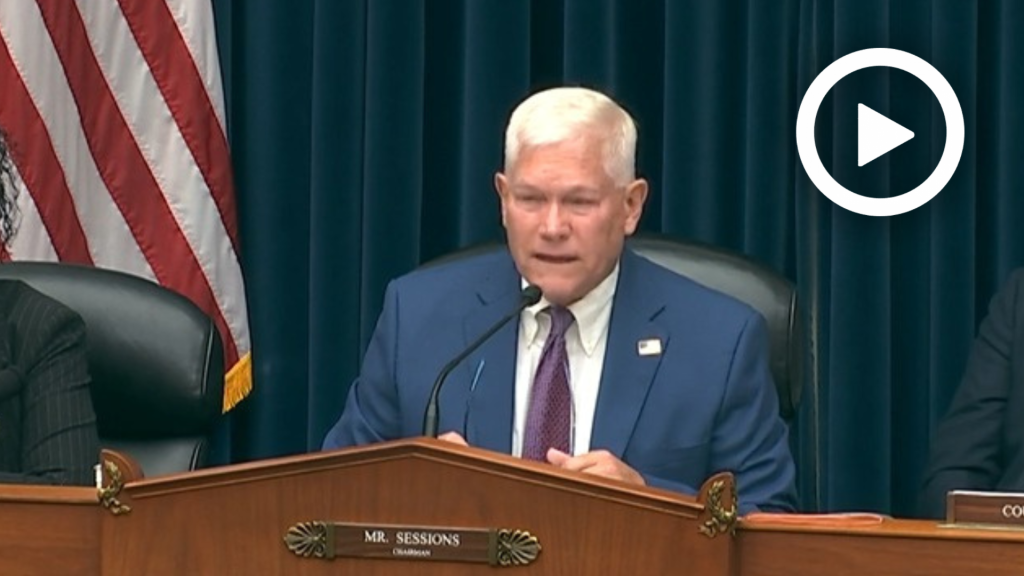Sessions Opens Hearing on Improper Payments in COVID Unemployment Insurance Programs
WASHINGTON—Subcommittee on Government Operations and the Federal Workforce Chairman Pete Sessions (R-Texas) today opened a hearing titled “Where Do We Go From Here? Examining a Path Forward to Assess Agencies’ Efforts to Prevent Improper Payments and Fraud” by discussing findings in the Oversight Committee’s staff report regarding fraud in COVID-related unemployment insurance programs, including details that states were unprepared to administer provisions passed by Congress.
Below are Subcommittee Chairman Sessions’ opening remarks as prepared for delivery.
Welcome to today’s hearing on tracking agency progress on identifying and preventing fraud and improper payments.
The estimated amounts of waste, fraud, and abuse in COVID-related programs are simply…mind-boggling.
Half a trillion dollars.
Maybe more.
Much of it lost to criminal actors and our enemies.
Often using comically simple tactics.
If this is not a call to action…I simply do not know what is.
The full committee and this subcommittee held hearings at the beginning of this Congress on this subject.
And during these hearings it was said early and often such fraud “could never happen again.”
That’s easy to say, but clearly what agencies were doing before did not work.
So things have to change…
And that includes the way the oversight community – and this Subcommittee – track progress across not only federal agencies, but at the State level – to make sure our anti-fraud measures amount to more than a screen door on a submarine.
Today, the Committee will release a staff report regarding fraud in COVID-related unemployment insurance programs.
One of the report’s findings was that in many instances, states were unprepared to implement the emergency provisions passed by Congress – to include the attending spike in unemployment claims.
While it is true COVID was an unprecedented situation, it nevertheless exposed weaknesses in the unemployment insurance framework – namely, an inability to scale.
There were also too many instances of basic oversight measures – like verification of identity – not being taken.
These are but a few examples in one program – but they illustrate the problem…and they illustrate the need to effectively track efforts to plug these holes.
This hearing was originally intended to serve as the roll-out for a scorecard to track anti-fraud and improper payment steps in major programs.
But it ultimately became apparent that we simply lack the data to determine whether programs and agencies are getting better, staying the same, or getting worse when it comes to preventing fraud and improper payments.
So in this hearing, I want to discuss the basics:
What are the questions we need to ask?
What information is needed to answer these questions?
And…is that information available? If not, what needs to happen so that it is.
I look forward to this discussion, and with that, I yield to the distinguished ranking member, Mr. Mfume.
